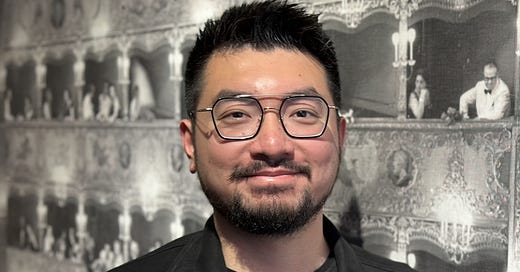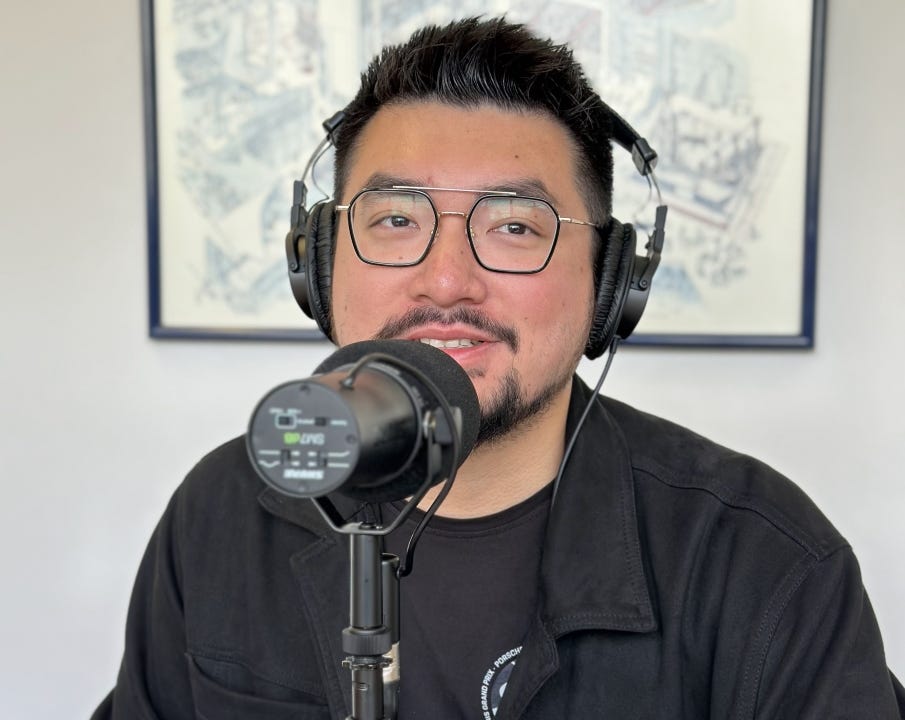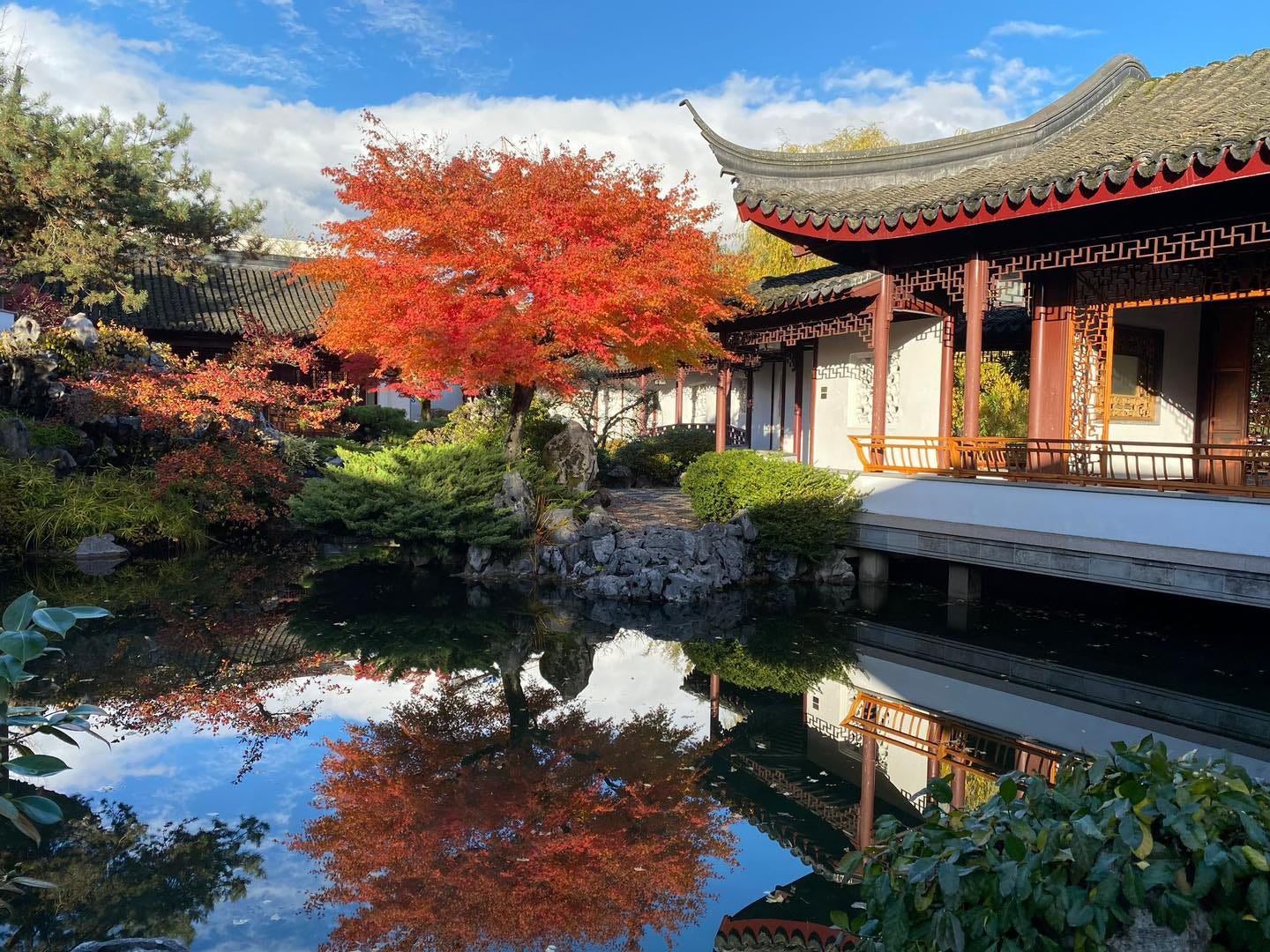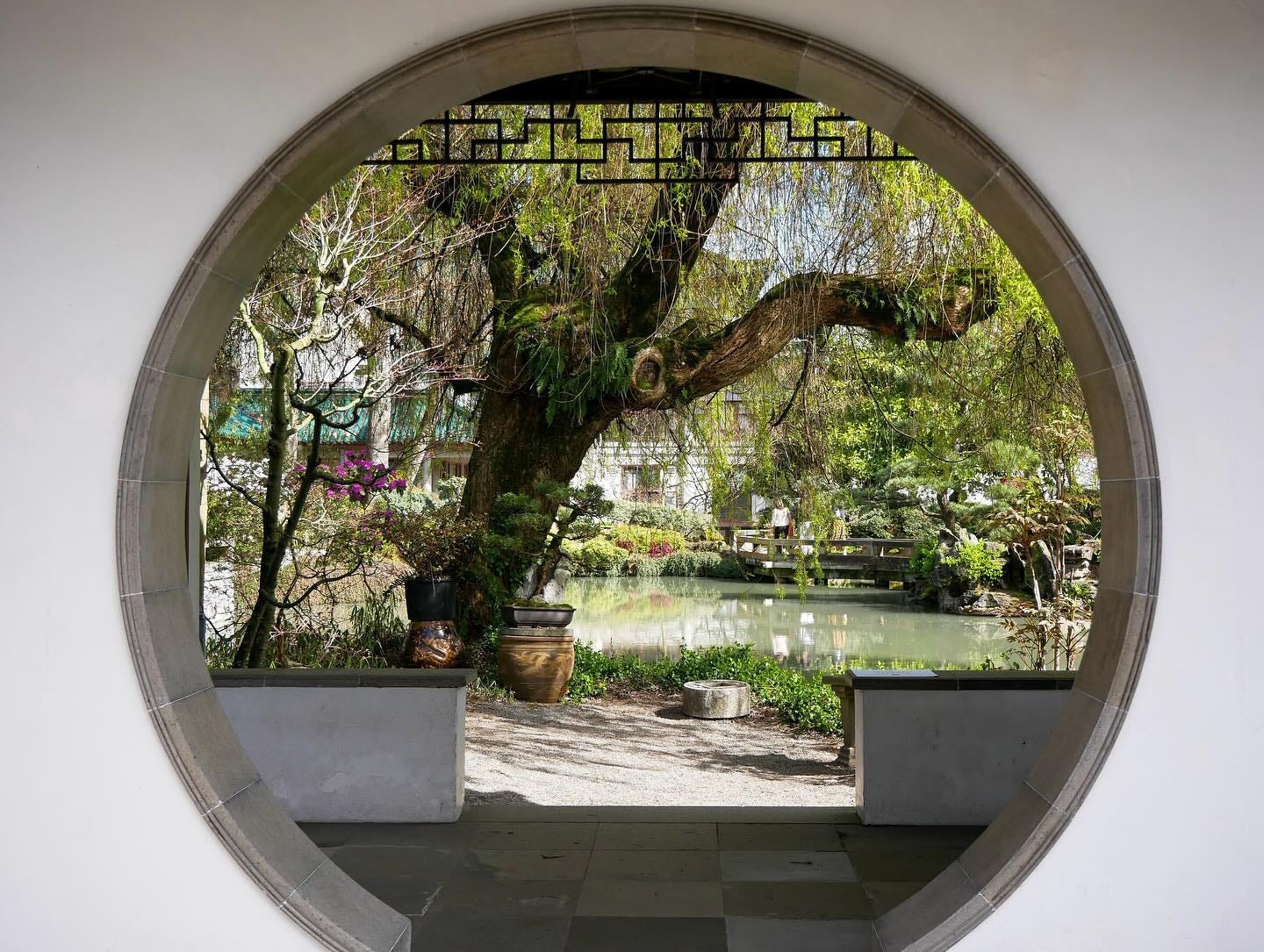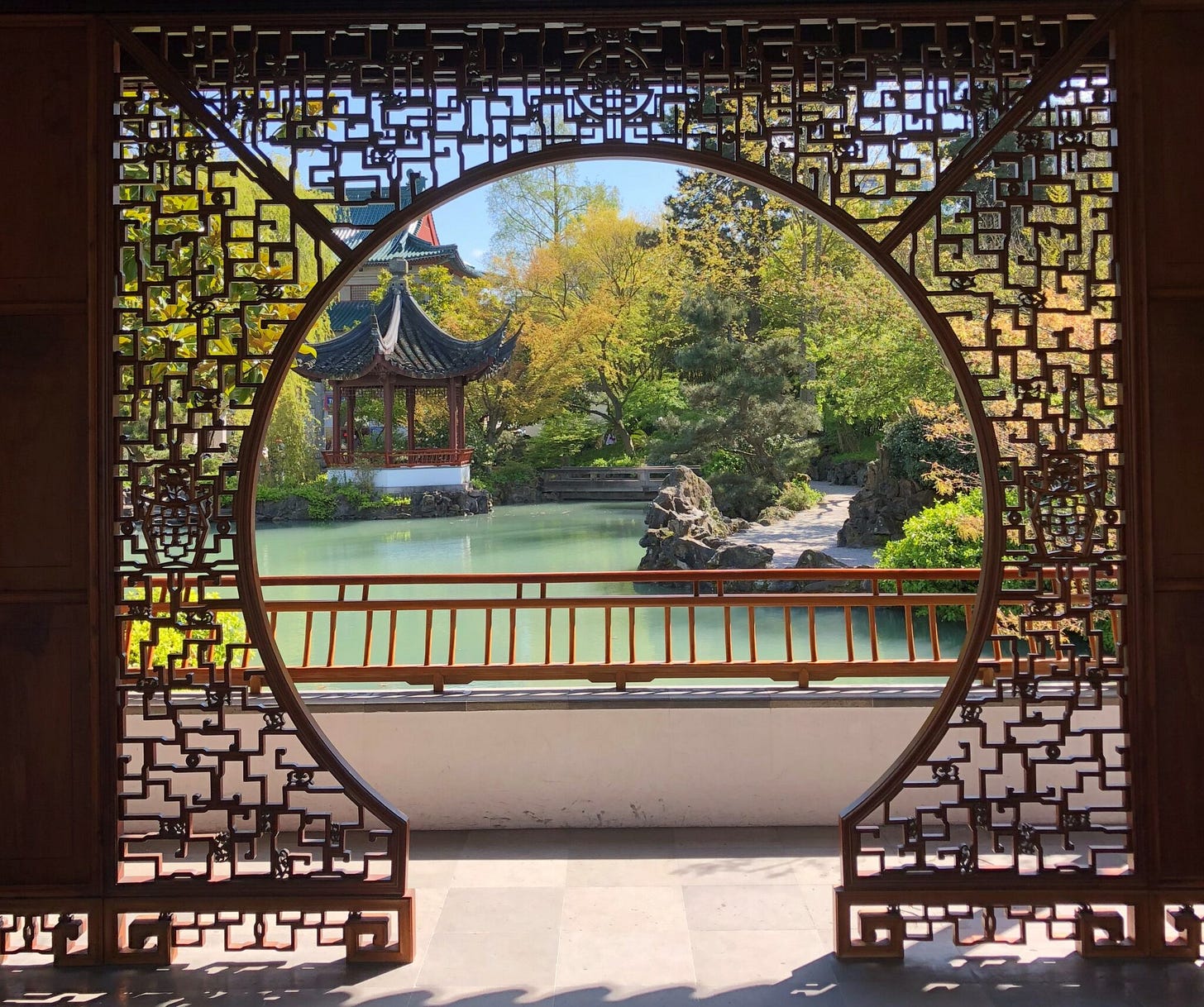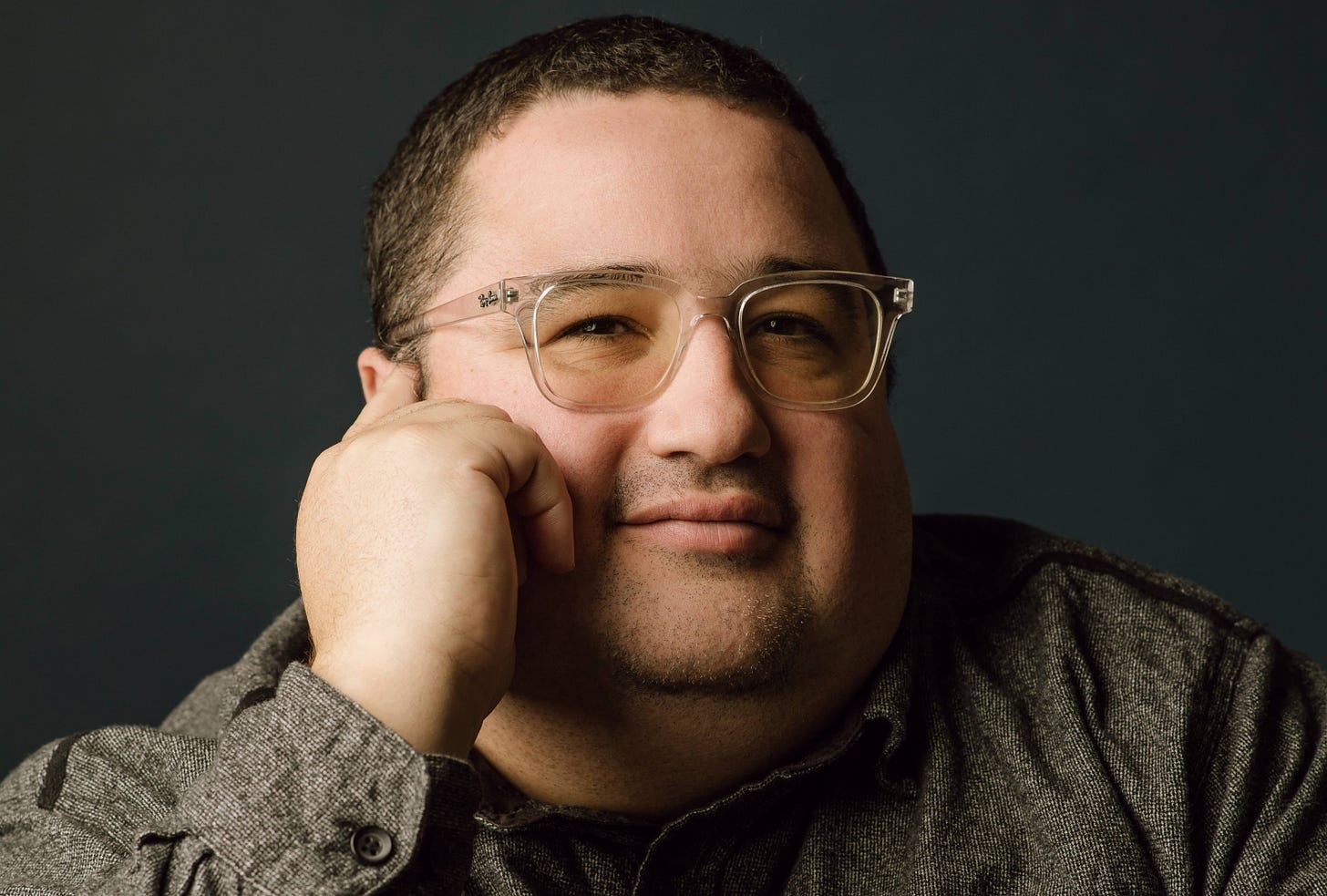Interweaving Histories: Henry Heng Lu on Vancouver’s Cultural Landscape
Dr. Sun Yat-Sen Garden’s new executive director shares insights on art, heritage, and the power of cultural collaboration to confront racism.
You can also download the podcast on all major platforms including Apple Podcasts and Spotify.
Ashley Daniel Foot:
Welcome to Inside Vancouver Opera. My name is Ashley Daniel Foot, and in honour of Asian Heritage Month, we are in conversation with curator, writer, public art consultant and the newly appointed executive director of the Dr. Sun Yat-Sen Classical Chinese Garden, Henry Heng Lu. Henry has enriched the Canadian cultural landscape through roles like the gallery manager for the Chinese Canadian Museum here in Vancouver, and executive director at Centre A.
Tell us what do you think the garden means for the city and why it's important for the cultural life of Vancouver?
Henry Heng Lu:
The Dr. Sun Yat-Sen Classical Chinese Garden, it's really unique, not just a tourist attraction, but also a registered museum and landmark and also a long-standing cultural institution in Vancouver Chinatown.
It opened to the public in 1986, and also it really symbolized this kind of collaborative approach and community resistance against building highway over Chinatown and a lot of the history, community support, collaboration. So really it's a symbol for our community, but also it just really important part of Vancouver's history and beyond.
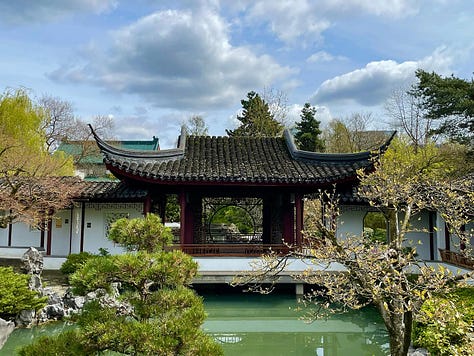
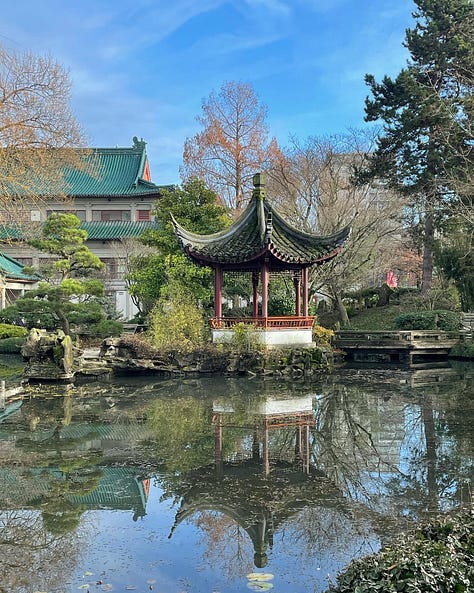
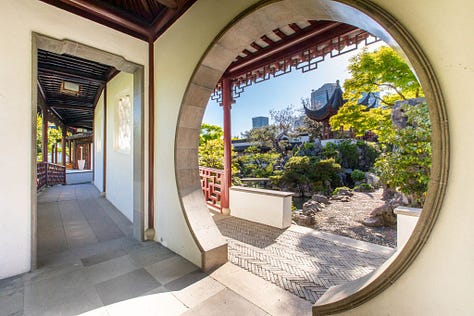
Ashley Daniel Foot:
We're also fascinated in the concept of interdisciplinary collaboration. We don't think that opera as an art form exists in a vacuum and we're interested in exploring and pushing the bounds of what it means to do that. I think your work as a curator already does that, and so we wanted to get some insight into how you think opera could perhaps do that as well.
Henry Heng Lu:
So we have a wonderful, just beautiful garden with all of the cultural treasures and integrity. It's just such a site with a rich history. Over the years, garden has hosted a lot of musical and performative productions. For example, we have our performances as part of the series called Enchanted Evenings. And from time to time, performances at the courtyards. It's an outdoor space and it's wonderful. And we hosted so many events also including filming, receptions and everything. So it's a really nice spot. It gives these productions a little bit more just cultural context where it's a multi-layer experience for the attendees and everybody. The performing arts are no strangers to the garden. And we are more than happy to continue all of these interdisciplinary productions and collaborations.
Ashley Daniel Foot:
You've been a curator and artistic professional practitioner for many years. Tell me about how all of that squares with our need for culture in Vancouver. How do you bring all of that experience to bear? Why is that important?
Henry Heng Lu:
I really think that my background in curating, it gives me this perspective into a cultural experience for our visitors, for everybody. And then to think about that as a whole, and then how we can also collaborate with other institutions, not just in the museum sector, but also performing arts sector and other community organizations to really provide that wholesome and comprehensive cultural experience. So I think about that a lot in terms of what we offer and also as part of the city's arts and culture institutions, and then how going forward we can collaborate more and better. And then to really enhance this overall experience for everybody.
Ashley Daniel Foot:
You serve on the Public Art Committee for Vancouver. What does that entail?
Henry Heng Lu:
The Public Art Committee, it's quite fun. I would say it's one of the city's civic agencies, and we got to review some of the public art proposals and then what in a few years or even longer, within a longer timeframe, that will come into our citizens, Vancouverites' lives because it will be across the city. So it's interesting to kind of be behind the scenes or think about again, this kind of overall arts and culture experience in the city and these encounters.
Ashley Daniel Foot:
What's been the most interesting project that you've been involved in approving or providing feedback on?
Henry Heng Lu:
Actually, most of them are fun because you really kind of think about what it means to have a public art project, a specific location, its meaning, and then what kind of things it brings to the community. But also to think about placing different and various public artworks in public locations, what that means for a city supporting these projects.
Ashley Daniel Foot:
The general public doesn't always think about the amount of work that goes into thinking about where a piece goes or why a piece is there. How can we do better at communicating that to the public?
Henry Heng Lu:
I think very operationally and just practically, perhaps there could be specific funds that are dedicated to marketing, to publicity, and then really to spread the word. I think that there are extraordinary cultural productions in the city, amazing spaces and dedicated arts workers, artists, and sometimes we just need a little more resources to really push that out. That just needs a little more external help sometimes.
Ashley Daniel Foot:
When you think about your wide range of experiences as a curator, looking back at some of the incredible projects that you've done, the award-winning Far and Near, Call Again, tell us about those.
Henry Heng Lu:
Far and Near: the Distance(s) between Us I feel that was done so long ago, but it has always been very dear to me because my research when I was a student was really focusing on Asian Canadian and Chinese Canadian racial politics, how that tied into cultural productions. And so for that project, I was able to bring together 11 Chinese Canadian artists to look at our community's evolution over the years, the past two decades. That was at University of Toronto.
I think that for me, it's really important to think about these intergenerational and multigenerational connections in the arts, and then how artists, well before my time, in the current times, and then upcoming artists and producers and how we have shaped our narratives of our own communities and our own stories as well. Call Again, it's collective that I co-founded it with some of my peers. Actually, has been serving as a little bit of a programming platform, but also to help spread the word actually for some of these events that might be interesting to the Asian Canadian communities.
Ashley Daniel Foot:
As Vancouver Opera honors Asian Heritage Month, we are troubled by the undeniable rise in Asian racism, not just here in Vancouver, but across the world. How do you think the arts and culture can confront this?
Henry Heng Lu:
I think that one of the ways I always think about this is that we have to be stronger. We have to be more proactive in creating our own narratives and then to protect that, but also to make sure that it's well archived and documented and all of these efforts that different communities and generations have put in, in crafting a safer space for our communities. So to me, there is a proactivity in that, this coming out of our own, and how to continue to tell those stories.
Ashley Daniel Foot:
Vancouver Opera has a proud history of collaborating with numerous incredible Asian artists including Joy Kogawa.
City Opera Vancouver recently collaborated with a variety of members of the community on the opera Chinatown. What kinds of projects excite you that you're going to be working on coming up?
Henry Heng Lu:
As we know that there are a lot of operas centuries ago, or a long time ago, there’s certain content that might not be relevant or fitting anymore in the current context. So I think that there is a way to challenge those challenging narratives within operas. I love operas, and I think that there's always a learning and teaching opportunity through opera to think about the realities that we live in and then what kind of outdated ideas that we should perhaps come back and update.
Ashley Daniel Foot:
Yeah, absolutely. It's something we wrestle with all the time, even with the big hits like Carmen. You look at the way that the role of women are represented and the domestic partner violence that is at the heart of that story and we see it with such a different lens today. Not to throw the opera out, but also to realize what it is is something that we grapple with.
How do you grapple with those kinds of challenges in your work as a curator?
Henry Heng Lu:
First of all, I usually, I would like to watch all of them and in different kind of contexts, and then to kind of compare. For example, I saw a Madama Butterfly in Verona, Italy, and I thought, "Wow! Interesting…
And then I saw it in Canada, and then there were just these details and different parts, you kind of feel that, "Okay, maybe somebody have been thinking about those areas." But still, I think that for me, there are a lot of these are great case studies to think about how we in a way inherit and we receive these sort of legacy projects, and then how do we go forward and to be more aware of our current contexts.
Ashley Daniel Foot:
And that's a wrap on our conversation with Henry Heng Lu, the newly appointed executive director of the Dr. Sun Yat-Sen Classical Chinese Gardens. Be sure to check their website for information and on upcoming events. As always, thanks to our producer Mack McGillivray, and I'll see you at the opera.
Henry Heng Lu is a curator, writer, public art consultant, and artist based in Vancouver and Toronto, Canada. He is the Executive Director of the Dr. Sun Yat-Sen Garden Society and has served as the inaugural Gallery Manager for the Chinese Canadian Museum, Vancouver, and as Executive Director/Curator at Centre A. He is a co-founder of Call Again, a mobile initiative/collective committed to creating space for contemporary diasporic artistic practices, within Canada and beyond. In 2018, he won an Ontario Association of Art Galleries (OAAG) Exhibition of the Year Award for his curatorial project, Far and Near: the Distance(s) between Us, at the Art Museum at the University of Toronto. He has been a member of the City of Vancouver's Public Art Committee since 2020, and has served as a juror for municipal and provincial arts councils, as well as international prizes.
Inside Vancouver Opera is hosted by Ashley Daniel Foot, Vancouver Opera’s Director of Engagement and Civic Practice. Boundlessly creative and fascinated by the way that art is created and presented, Ashley has guided arts organizations across Canada to craft messages and tell unique stories.
At Vancouver Opera, Ashley carefully develops all programming that takes place off the mainstage and looks for unique and unexpected ways to highlight the power of opera in the community. He also manages all education, community partnerships, and guides the company’s commitment to justice, equity, reconciliation, and diversity. He’s particularly proud of his recent collaborations with with the Vancouver Public Library, BC Alliance for Arts and Culture, Vancouver Art Gallery, and Rumble Theatre. He is also the co-chair of the City of Vancouver’s Arts and Culture Advisory Committee.
Inside Vancouver Opera is produced by Mack McGillivray, an audio producer creating shows for radio and podcast. He is passionate about cultivating local community and a lifelong lover of opera.


